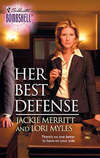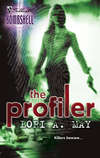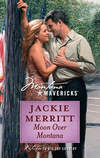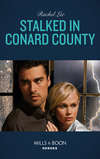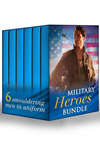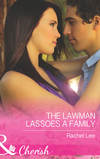Kitabı oku: «Wildcard», sayfa 4
Kulkulcan—a priest who claimed to be the son of the only god, who taught monotheism, peace and justice, who condemned human sacrifice and whose arrival catapulted a people to hitherto unknown heights of civilization—could well be the grandson of Jesus of Nazareth.
“What do you want me to do, Monsignor?” Lorenzo asked.
“Go back to Guatemala.”
“Are you mad?” Lorenzo asked. “Need I remind you that Americans are not popular down there right now? That was why I was removed in the first place, and it’s gotten much worse in the last fifteen years.”
The monsignor shook his head. “You still have friends there among the people. They will remember you. They will trust you.”
He leaned forward and looked into Lorenzo’s eyes. “Find the codex, Father, if it exists to be found. And if you find it, guard it with your life.”
6
Washington, D.C.
“Anything?” Miriam asked as Tom scanned the computer printouts spread across his desk.
“Maybe,” he said.
She’d been watching his growing excitement for the past hour and a half. She recognized the signs, the subtle cues of a born predator that has caught whiff of prey. These were the same facial tics, the same body posture, the same gleam in his eyes that had first attracted her notice. He had not been just another eager beaver law school grad who had signed on with the FBI. He’d had that air of a relentless hunter about him, even then.
“What do you know about sheep ranching?” Tom asked.
Miriam looked at him. “Are you back on that Idaho militia thing? I thought we’d dismissed them as cranks.”
Tom shrugged. “I decided to run the financials on all the groups. No stone unturned, eh?”
“I suppose,” Miriam said. “I’d feel better if I knew we were turning over stones in the right garden.”
“Well,” Tom said, “that’s just it. Most of the groups we’ve looked at are unfunded nutcases. Many of them aren’t even groups at all, judging by their financials. Turns out most of them are some lone wacko with a Web site and an inflated sense of his own importance.”
“But you found something in the Idaho financials?” she asked.
Tom nodded. “Maybe. I mean, have you ever been to a sheep ranch?”
“No,” Miriam said. “Have you?”
“Once, as a kid. School field trip.”
“And?”
“It was a small operation, like Dixon’s,” Tom said. “A lot of grazing land. The rancher showed us how his dogs rounded up the sheep, and the shearing shed, and so on.”
“And your point is?” Miriam asked.
“Why would a sheep rancher need a fleet of five Hummers? One, I can see. But five?”
“Employees? I dunno. Something to bounce over the pastures and round up the strays?”
Tom shook his head. “He’d use a horse or dogs. An SUV wouldn’t be agile enough. A sheep rancher might use a Hummer for riding his fences, or for towing, but neither of those is an every day or even an every week chore. As for employees, from what I can see, Wes Dixon doesn’t have a huge operation. It’s a small ranch. So why five Hummers?”
She held up her hands. “You’ve got me, Tom. Maybe he bought them for his militia?”
He shook his head, studying the printouts again. “Maybe. But they wouldn’t be all that useful for your run-of-the-mill citizens’ militia group, and a Hummer is an expensive SUV, even if it’s a base model rigged out for ranch work. He took out a loan for two hundred fifty thousand dollars to buy a fleet of five. And guess where he got the loan?”
Miriam’s heart skipped a beat. “His brother-in-law’s bank?” she asked.
“Bingo. Now, there’s no big surprise there. Edward Morgan is a nice brother-in-law, so he pulls a string or two to make sure his baby sister’s husband can get a loan for some new ranch equipment.”
“Why would he need to pull strings?” Miriam asked. “Couldn’t Dixon get a loan?”
“Like I said, the ranch is a small operation. And, judging by Dixon’s tax returns, not all that successful. I’d guess it would be hard to find some local Idaho banker to spring for a quarter million on a fleet of monster SUVs for a small-time sheep rancher. I’d be surprised if Dixon could get fifty grand to buy new stock at this point.”
Miriam nodded. “So Dixon’s wife talks to her brother, and voilà. New Hummers for all.”
Tom looked at her, once again shaking his head. “Not exactly. And that’s the interesting part. Dixon’s wife talks to her brother and gets a loan for new Hummers for all.” He paused for a moment. “But there’s no record that anyone ever bought them.”
“When was the loan?” Miriam asked, sensing where he was going with this.
Tom flipped through the printout. “Eighteen months ago.”
“So this wasn’t an ordinary car loan,” she said.
“Nope. The Hummers weren’t put up as collateral. In fact, I can’t find any security for the loan. Morgan’s bank just issued a check for a quarter million. And Dixon never bought the Hummers.”
“Payments on the loan?” Miriam asked.
“Not a one.”
“Dixon’s credit report?”
Tom held up another printout. “The loan isn’t even mentioned. Apparently the bank never posted it to the credit bureaus.”
“So what you’re saying,” Miriam said, “is that Wesley Dixon got an unreported loan for a quarter of a million dollars from a major New York bank with no collateral, and he’s made no payments.”
“And has no fleet of big, shiny new Hummers,” Tom added.
“So where’s the money?” Miriam asked.
“Not in his personal accounts. And I can’t find it in his business accounts, either. Or in the militia’s. Or any record that a sum like that passed through any of those accounts. But I’m no bookkeeper.”
She’d picked up the scent, just as Tom had. The scent of prey. She reined in her excitement. “You know this is a long shot, Tom. It’s a hundred to one—hell, a thousand to one—that this means what we think it might mean.”
Tom nodded. “But if it does, we might just have found the money that paid for the hit on Grant Lawrence.”
“That’s a stretch,” Miriam said. “Eighteen months ago… Would someone plan an assassination attempt that far in advance?”
But someone might, she knew. Her pulse accelerated. If someone wanted to make sure all the trails were really cold, they might well plan that far in advance. And Edward Morgan was a lifelong friend of Harrison Rice, who was now the Democratic nominee for president.
“It’s a helluva stretch,” Tom agreed. “And it’s probably exactly what I said last night. Horseshit. This Morgan guy wanted to bail out his brother-in-law’s failing business, so he jimmied up a loan to slip Dixon some extra operating cash. That’s probably all it is, right?”
“If it’s even that,” Miriam said. “He probably got the loan for the Hummers, discovered his barn was about to collapse or some such crisis du jour, and had to spend the money on that instead. And he kept it off the books to dodge the IRS.”
“It’s horseshit,” Tom said.
“It’s absolute horseshit,” Miriam agreed.
There was a long moment of silence. She knew what he was thinking. She was thinking the same thing. Yes, this was probably a waste of time and Bureau resources. But then again, their entire assignment was probably a waste of time and Bureau resources. At least this had a vague hint of illegality. Banking and IRS regulations, sure, and probably an innocent, well-intentioned, charitable violation, at that. But it was still far more interesting than the rest of what they’d read. And within the purview of the FBI.
“So you’re going to run it down?” she asked, forcing herself to sound casual.
“Damn right I am,” he said. “Any luck on those videos?”
She glanced at her watch, and both brows lifted. “Listen, we need to go to lunch.”
“Now?”
“Sure. Then we’ll be ready to dig into those files again.”
He grabbed his suit coat and without another word followed her. Miriam never did anything without a reason.
Rome, Italy
Monsignor Giuseppe Veltroni sat on a stair at the Trevi Fountain, watching the tourists. They came in all sizes, great and small, all colors of the human rainbow, and speaking the babel of dozens of languages. At this time of evening, however, the fountain was even more crowded than usual. The most irritating thing was the tour guide using a megaphone to speak to his flock in Japanese. The Japanese didn’t bother the monsignor, but the volume did. It nearly drowned out the soothing sounds of cascading water.
He himself was clad like the rest, or nearly so, in civilian clothes of slacks, windbreaker and jogging shoes. The air was chilly for spring. While the tourists looked comfortable, the monsignor was not. A creature of the Vatican, he vastly preferred his cassock. Even a clerical suit was preferable to this open-throated shirt. He missed his collar and felt deceptive without it. But privacy was his primary concern in this public place.
A pigeon alighted beside him and cocked its head, indicating a demand as clearly as if the bird had spoken. “I’m sorry, little one,” the monsignor murmured. “I have no food.”
Moments later the pigeon departed, joining its fellows across the fountain, where a young boy was scattering bits of cannoli. The flocking birds alarmed the child’s mother, and she whisked him away, leaving a trail of pastry crumbs in their wake.
Monsignor Veltroni returned his attention to the fountain. Begun by Bernini, it had been finished by Salvi, who earned most of the credit for the fantastic beauty of Neptune riding a seashell chariot drawn by winged steeds. The monsignor especially liked the winged horses. They appeared to rise right out of the fountain itself along with the water, as if emerging from the sea, and to his mind they carried a message of hope. Out of the darkness and depths we shall rise into the light….
The monsignor very much hoped he would rise into the light, which was the reason he was sitting here on this hard marble step, surrounded by people who tossed coins into the fountain to ensure their return to Rome.
A man sat beside him, a dark man, weathered hard by deserts and the suns of many years. They were a contrast, these two, the monsignor soft and pale from his duties, the other hardened and darkened by his. Yet they were players in the same game.
“You have difficulties,” the man said in flawless Italian.
Veltroni wondered how many languages the man spoke, having heard him converse in no fewer than four. Rome was an international city, and this spot a tourist attraction, so Italian was as private as any language they might have used. Certainly no less so than English, Veltroni’s only other language of competence.
“You requested a meeting to tell me something I already know?” Veltroni asked.
“No,” the man said, shaking his head. “I requested a meeting to offer you my assistance.”
Veltroni let out a short, silent, derisive laugh. “Thank you, but no thank you. The Church prefers to handle such matters itself.”
“The Church,” the man said, “doesn’t even know about this matter. We both know your group is not recognized by the Vatican. I doubt the Pope knows you exist.”
“The Holy Father has many responsibilities,” Veltroni replied. “He cannot have his finger on everything.”
“We both live with secrets,” the man said.
“You more so than I, apparently,” Veltroni murmured, “as you seem to know all of mine.”
These meetings always troubled him for that reason. More than once had he tried to pry open the wall of stone that shielded Nathan Cohen, if that was indeed his name. He had found very little. Certainly not enough. The man beside him was too much of a mystery, placing Veltroni at a distinct disadvantage. In this game, information was power.
“Like you, I am but a humble man of God,” Cohen said.
That part might have been true, though Veltroni knew this man was no rabbi. He doubted the man was even Jewish, although he sometimes presented himself as such. Rabbis operated within the structure of the Jewish community, and while that structure was not as rigid as the Catholic Church, neither was it anonymous. For a while Veltroni had wondered if the man was Mossad—Israeli intelligence—but discreet inquiries had ruled that out, as well.
“You don’t believe me,” Cohen said.
It was not a question.
“No,” Veltroni answered. “But you already knew that.”
“You tried very hard to locate me after our last little chat,” Cohen replied. “Your people are good, but…well…mine are better.”
“And who are your people?” Veltroni asked. “You’re offering to help in a confidential matter known to very few. I’m not such a fool as to believe that help would come with no strings attached. If I were to accept your offer, I’d want to know who I would be beholden to.”
Cohen looked up at the clouds for a moment, as if he were considering what to say, although Veltroni had no doubt he had long since rehearsed every possible move and countermove in this verbal sparring match.
“Is it not enough to say I am a man who thinks the world would not be improved by the chaos that would arise from these discoveries?” Cohen asked.
“No,” Veltroni said. “I am far too old to believe in convenient altruism.”
“You are a cynic, my friend.”
“I am a realist,” Veltroni answered.
“The defense of all cynics and depressives,” Cohen replied with a quick chuckle. “You don’t see the glass as half-empty. It simply is half-empty, correct?”
“Mockery is a dangerous game, Mr. Cohen. Even a dog tires of being poked with a stick. And I lack the saintly patience of that species.”
“Please, Monsignor, let us not devolve into boys, strutting about the schoolyard with our chests out. That would demean us and serve no one but your enemies.”
Veltroni was not accustomed to being lectured, nor to being patronized. His temper flared, his jaw clenching for a moment, before he bit back his reply and forced himself to take a long, slow breath. Wading into battle with an unknown enemy was the height of folly, and he was no fool. But signing a blank check to a stranger was equally foolish.
“It seems,” Veltroni said, “that we have little more to discuss. I cannot consider your offer unless I know what is involved. My superiors—and I do have them, even if my organization is not a formal organ of the Church—would not permit it. We could sit here and joust all day, but, as I said, I am not blessed with saintly patience.”
Cohen watched Veltroni rise and walk away. Another man might have regretted the course of the conversation, but Cohen had expected nothing more. Veltroni might lack patience, but Cohen did not. The Guardians had waited over three thousand years for a conjunction of opportunity such as now existed. A few more weeks were but a drop in a vast river of time.
Veltroni was not yet desperate. But he would be, and sooner than he knew.
7
Fredericksburg, Virginia
Tom and Miriam reached the door of her house just in time to keep the courier from departing.
“I’m Miriam Anson,” she said to the courier. “I believe that’s for me.”
“Identification?”
She showed him her Bureau ID. His eyebrows lifted, but he said nothing, merely had her sign a receipt. Then he was off, whistling, and Miriam and Tom entered her home with the box.
“I take it Terry came through,” Tom said as she dropped both the box and her keys on the dinette.
“You betcha.”
“So this is lunch?”
“Well, whatever you can find in the fridge is lunch. Unless you want to eat videotapes.”
The thrill of the hunt was rising.
“Pastrami and homicide,” he said, returning moments later. “Extra mustard.”
She opened a bottle of water. “You want to tell me what you’re looking for? We already know no one caught the assassin on camera.”
“Well, it’s really quite simple.” He used a key to cut the tape on the box. “I want to know what the Secret Service was doing during the shooting.”
She raised her brows. “Conspiracy involving the Secret Service?”
He shrugged and pulled a stack of videocassettes from the box. “We’re supposed to disprove a conspiracy, right? Well, I’m about to disprove one angle everyone is going to be screaming about.”
She nodded slowly. “Maybe,” she said.
“Right. Maybe. No one’s expecting us back, I hope.”
“Tom, at the moment I don’t think Kevin much cares if we fall off the edge of the earth, as long as we don’t get in the way of the ‘real’ investigation.”
“My thought exactly.”
He held up the tapes and gave her a crooked smile. “Shall we?”
Tom and Miriam were still hard at work in her living room later that night. It had become their base of operations. She had dragged in a whiteboard on an easel she’d packed away in a closet, some dry erase markers, a folding table and the torchère from her bedroom, which made the entire room nearly as bright as day.
They had watched the videos repeatedly and were now assembling a time line on the white board, listing who was where when.
Finally Miriam tossed her marker down in frustration. “I don’t see anything out of line.”
“I do.” As he stood looking at the time line, Tom pointed out each item he mentioned. “Okay, we’ve got one agent on the podium with him.”
“Right.”
“One in front of the podium on the ground floor.”
“Right.” She flopped on the couch.
“And two near the back of the room, right?”
“Right.”
“And none, absolutely none, outside in the lobby.”
“Well, Grant wasn’t out there.”
“Hmm.” Tom closed his eyes and pictured again what he’d seen on the tapes. “Wrong,” he said.
“Wrong?”
“Wrong. Most definitely wrong. There were nearly two hundred people in the lobby, and a constant flow of people in and out of the ballroom. Nobody was checking credentials at the ballroom door?”
“Campaign staffers were,” Miriam said. “Senior people were allowed in, and the rest were in the lobby. I’d guess that’s standard procedure in these things.”
“Maybe.” Tom opened his eyes and sat on the other end of the couch. “It’s possible. But Terry says they’re running down a bunch of threatening letters, right?”
She nodded. “That’s what he’s hearing. Shop talk. Lawrence’s protection team was busier than hell with all the hate mail. But he was the frontrunner. Terry didn’t sound like anyone thought it was unusual.”
Tom nodded. “The protection detail should have been more alert.”
She leaned toward him. “Tom, you can’t second-guess them. It won’t do any good. There were four agents there. Five counting the supervisor in the video room. That should have been enough. Those guys know their jobs.”
“Sure.” He rubbed his chin. “On the other hand, ‘those guys’ let someone change the parade route in Dallas. Did you know Kennedy’s limo nearly had to stop when it took that hard left turn onto Elm, and even so, it almost hit the curb? He was a sitting duck. And that was strictly against Secret Service regulations at the time.”
Miriam let out a sigh of exasperation. “Tom, things happen. Unforeseen things. It doesn’t make a conspiracy.”
“I’m not saying conspiracy. I’m just saying that somebody screwed up.”
“Okay. Okay.” She pushed her hair back from her face. “I’ll go with that. Security was a little lax. But in crowds like this…” She shrugged.
“You’re a good devil’s advocate, Miriam.” He smiled.
“How am I supposed to take that?”
“You make me think more clearly. That’s how.”
Surprising her, he reached for the remote and switched on the TV and VCR again. He hit Rewind, and a bewildering array of images flashed before her eyes. Apparently this was one of the security tapes, in full living color.
Suddenly a picture froze on the screen.
“What do you see?” he asked.
“Jerry Connally and Grant embracing.”
“And where’s the agent?”
“Left rear.”
“Right.” He skipped ahead. “And now?”
“Grant’s coming down the steps from the stage with Jerry.”
“Right. And the agent is still on the stage.” Tom jumped forward again. “Still not following them.” Forward again. “He’s still on the stage. If I remember correctly, the other agents in the room stayed where they were, too. Except for the guy in front of the podium.”
Another picture showed that agent turning in the direction Grant and Jerry had gone. The next showed him take a step in that direction. The agent on the podium never moved a muscle.
“Now,” said Tom, “call me crazy, but I want to know why that agent on the stage never moved. You know the protocol for protection teams in a crowd, Miriam. A moving box, with the principal in the middle.”
“The crowd had been vetted, Tom.”
“Maybe. Maybe.”
He switched tapes to one with film of the lobby outside the ballroom. Grant and Jerry appeared in the doorway, stepping out into the crowd. The Secret Service agent was holding the door, eyes on Lawrence.
“It looks innocent enough to me,” Miriam said. “Do me a favor and don’t replay the shooting.”
“I won’t. But it’s not innocent. The agent is looking at Lawrence, see?” He pointed. “They’re trained not to look at the principal but at the crowd.”
“Lawrence is passing him, Tom. It’s a glance. He’s a human being. I’m sorry. I just don’t think there’s enough here to hang the security detail out to dry.”
After a few more minutes of discussion that went nowhere, Miriam went to bed. Tom replayed the news video that Jerry had sent. Only one of the news crews had been in the lobby…giving the world the unforgettable images that were still being broadcast.
Nothing.
Finally, to give his head a chance to clear, he picked up his files and drove back to D.C., where he could work on the Dixon conundrum without disturbing Miriam.
Like any good agent, he’d found an irregularity, and he was determined to run it to ground. So far he had only a probably illegal loan from a major bank to a slightly off-the-edge sheep rancher in Idaho who funded a private militia group that so far seemed to consist of five men and their dogs.
Which wasn’t a hell of a threat to the security of the United States. After Waco and Ruby Ridge, the FBI wasn’t about to ride in with guns blazing over six wackos with some semiautomatic weapons.
But the money…a quarter of a million dollars… That was too much to ignore. And for a while it silenced a small girl’s cry of betrayal.
It was the links. And he’d long ago learned that few links in life were purely accidental. Like attracted like. Harrison Rice had attracted Edward Morgan, whose sister had attracted a military cadet named Wesley Dixon—a man who by all accounts was destined for stars on his shoulders until he went…nuts?
Not nuts. If he was nuts, his wife would have left him and his brother-in-law wouldn’t have risked giving him a shady loan. Ergo, Wes Dixon wasn’t nuts, and nothing about him and his apparently crazy turn in life had caused a break between him and the powerful establishment he’d once belonged to.
That had Tom’s nose twitching like mad. If Dixon still had an in with the power elite, then he must in some way be useful to them. The question was, was he still on the A-list, or had he been demoted?
That was surprisingly easy to learn, thanks to all the security put in place since September 11, 2001. It didn’t take much effort to get his computer to spit out the records of all Dixon’s air travel in the last two years.
It was a pretty picture. It seemed he regularly traveled to New York and Boston, and once to D.C. His wife often traveled with him, but not always. He maintained connections.
Tom sighed and rubbed his eyes, not wanting to admit that he was getting too tired to think clearly. Admitting that would mean going back to his room to sleep, a guest room in Miriam’s house, a room with not one thing to identify it as his own space, even temporarily. Even in the bathroom, his toothbrush and razor were packed away in a travel kit. He was a man far from ready to move on with life, and far too close to his past.
So he got another cup of coffee from the machine, forced himself to drink it, then closed his eyes for a few moments as he tipped back in his chair.
Links. They were there. And for a quarter of a million, they meant something.
He returned his attention to the computer. By now the FBI had the names of all the agents assigned to Grant Lawrence’s protection. And while they had probably only taken statements, since the Secret Service was virtually above reproof, one FBI agent, semi-suspended or not, was going to do some background checking.
It was another link, possibly accidental, but his nose was twitching like mad.
After all, those guys were trained never to look at the principal.
Actium, Greece
31 B.C.E.
Osarseph stood beside his queen and watched the Roman ships doing battle in the clear blue waters below. This was not what he, or his queen, had wanted to see.
Marc Antony, the handsome Roman general whose heart she had won, was watching with a knitted brow, leaning over to an aide, who relayed instructions to a signalman, who in turn stood on the cliff to wave flags in encoded sequence. It was a vain attempt to control what had spun badly out of control.
Since the murder of Julius Caesar, Cleopatra had steered a dangerous course through Roman politics. Ten years had passed since she had arrived in Tarsus and invited the young general to dinner. Since then, she and Antony had increasingly cast their lot together. That much, at least, had gone as Osarseph had planned.
Antony had all but guaranteed that, once he disposed of Octavian, Cleopatra would retain control over Egypt as a sovereign ally of Rome. Indeed, more than once he had hinted at permitting the Ptolemaic Dynasty to rule the eastern half of the empire, while Rome governed the west. With no other power sufficient to challenge her, and the throne of Egypt both secured and enhanced, Cleopatra would be uniquely positioned to permit Osarseph and the Guardians to bring mankind forward into a new age of Light.
Osarseph had no such hopes for Octavian. A hardline Roman to his core, Octavian, if allowed to rule, would enforce Roman law—and, worse, Roman religion—throughout his reach. The prophesies had warned of a religion that would rise from Rome to dominate the world. Though by no means a superstitious man, Osarseph could feel in his bones the tingling of those prophecies emerging on this warm autumn morning.
Antony had hoped for a land battle, his army against Octavian’s. Antony was the better general, and his nineteen legions were better trained and more experienced than Octavian’s largely home-guard force. Weeks before, he had sent his twelve thousand cavalry on a raid to cut off Octavian’s water supply and force his army into battle. The raid had come to naught, and the campaign had ground to a stalemate.
A stalemate that had favored Octavian’s lies, for now Antony’s own troops were hearing rumors of a Roman general who had abandoned Rome for Egypt and a queen-sorceress who held him in thrall. Day by day, desertion and disease bled Antony’s once-proud legions. Finally he had been left with no choice but to meet Octavian in a sea battle. That battle was now proving why it had been Antony’s last resort. His fleet was simply no match for Octavian’s.
“You must prepare to escape, my queen,” Osarseph said.
Cleopatra—intelligent, charming, attractive despite her hooked nose, perhaps the most powerful woman the world had ever known—nodded slowly. “So it appears. Tell them to prepare my flagship, with sails at the ready.”
She turned to Antony. “We must go, my love. There is nothing left here to be won. We will fight that man at another time, in another place.”
Antony seemed poised to refuse, though in the end he gave the orders. “You get away first. If they catch you, Octavian will kill you. I will stay with my men until you are safely away.”
“No,” she said. “We go together. As we have always gone. Together.”
“I will permit no other course,” Antony said. “I must see to my men. Arrange for their withdrawal. Many have abandoned me, but I will not abandon those who have stayed by my side. They deserve my loyalty, as they give theirs.”
Osarseph knew this was not a battle Cleopatra could or would win. Antony was a soldier to his soul, and he would not leave his men leaderless. “Come, my queen. Let us away, and quickly.”
By the time they boarded her flagship, the captains had finalized the details of the breakout. Octavian’s ships, though greater in number, did not carry sails into battle. The excess weight merely slowed the oared vessels. But Antony and Cleopatra had insisted their captains be ready to raise sail. A freshening afternoon wind would be their deliverance.
If only for today.
Osarseph had no illusions that this was more than a temporary escape. Octavian would buy off Antony’s legions, then hunt the couple to the ends of the earth, if necessary, to secure his primacy in Rome. And with that would come the end of Egypt. The Guardians would return to the shadows, forced yet again to wait for the course of events to offer opportunity.
The time would come. The prophesies guaranteed that. And with opportunity would come a new age for the world. Osarseph would not see that time. His grandsons, who were just now being groomed for the mysteries they would one day master, would not see that time. Instead, he and they would do what those who’d come before had done.
Preserve the mysteries.
Protect the Light.
And wait.
Ücretsiz ön izlemeyi tamamladınız.


